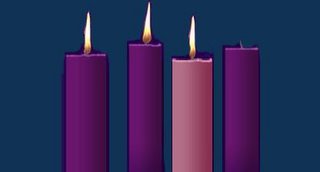This is not quite a book review!
I'm still currently reading this book; it has been a wonderful book so far, though its treatment of major issues is a little superficial. I'd have liked to read more details. Perhaps with a longer time at hand, Professor Thomas E. Woods, Jr. would have made a thorough historical treatise not unlike Harry Crocker's "Triumph". However I'm writing this short note just so that I don't forget a few threads I'd like to research deeper.
In particular, the chapters on "Church and University" & "Church and Science" made it clear that so many prominent scientists were inspired by their faith; and it is no coincidence he pointed out that some luminaries have been monks and priests. What I find incredible is that I've never heard of them! Sure one's heard of a few famous Catholic scientists like Mendeleev and Pasteur. But Fr. Nicolas Zucchi (inventor of the reflecting telescope, who took one to Kepler)? Fr. Macelwane of the field of seismology? Fr. Boscovich who wrote Theory of Natural Philosophy? Fr. Athanasius Kircher? The Jesuit Seismological Service? Perhaps my involvement in science doesn't go deep in those areas, and neither is, I suspect, the average college grad's general knowledge about the history of science. Yet the contrast between the magnitude of their contribution and the relatively scarce credit due to them is so stark.
The Church suffered from an unsavory and wholly unjustified reputation for repression of science. The author spent a large part at the beginning of this chapter just 'clarifying' the Galileo scandal! Few modern-day high school or even college grads are aware of the Church's role in 'depersonalization' of nature, modernizing the approach to enquiry and establishing a discipline called science. I find it extremely interesting that the author made a causal link that the Christian worldview of the ordered, mechanical universe having an intelligent Creator who has the 'complete creative freedom' and yet chose to create a universe that is 'rational, predicatable and intelligible', has inspired science:
(Page 80-81):
[This approach] avoids two potential errors. First, it cautions against speculation about the physical universe that is divorced from experience.
...
Second, it implies that the universe that God created is intelligible and orderly, since God possesses the raw power to bring about randomness and lawlessness in the physical world. (and yet did not!)
and also on page 76, where the author quoted Fr. Stanley Jaki, a historian of science who wrote Science and Creation, that science has suffered a 'stillbirth' in non-Christian 7 'great cultures': Arabic, Babylonian, Chinese, Egyptian, Greek, Hindu and Maya, precisely because of the lack of conducive worldview that made 'formal and sustained scientific enquiry' such a success in Christian Europe—that is, one where the universe is seen as the work of a Creator who 'has endowed [it] with consistent physical laws', in contrast with the view of universe as having 'spirit' and will of its own, 'dominated by a pantheon of deities' who naturally, do not encourage observation and exploration of a regular pattern at work.
Being ethnically Chinese, reading this statement has a profound effect on me. As far as Chinese goes, it only comes to my look. My grandfathers came to Indonesia; both were from the merchant folk, and there's precious scant, if any, worldview prevalent in the family. There is a pantheon of gods, of course, coupled with a strong belief in fate and luck, and science (or pursue of natural philosophy) is nowhere in the picture.
It's getting late, but reading these chapters have definitely stirred a thread of thought.. more on this later.

